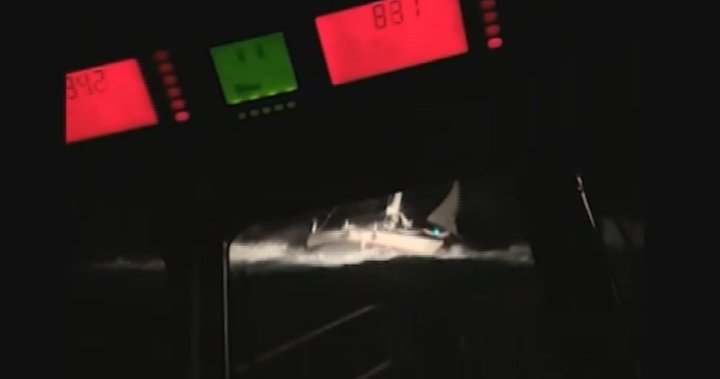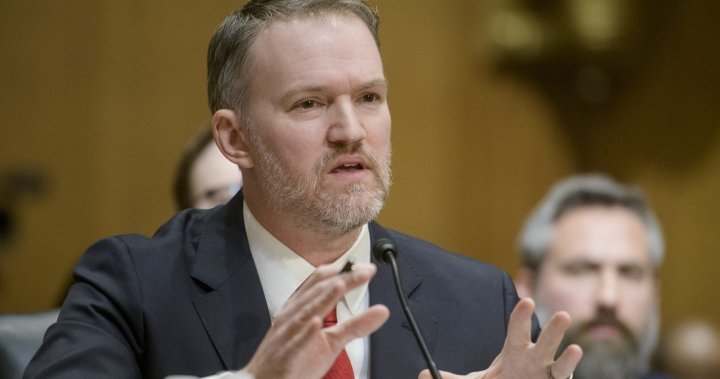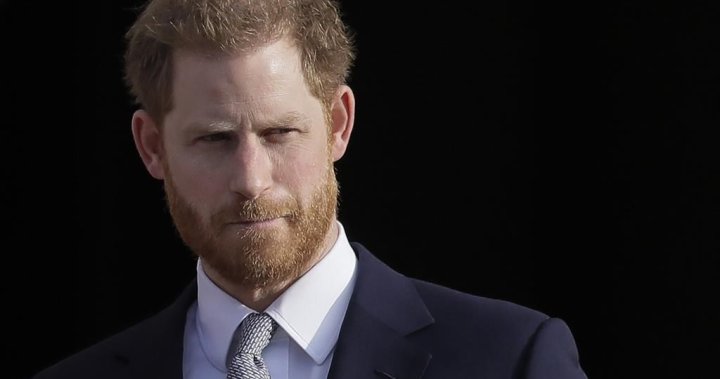The Russian ruble fell to its lowest level against the US dollar since the start of its full-scale invasion of Ukraine, a likely consequence of new US sanctions and the latest sign of the economy’s wartime difficulties.
Russia’s central bank said on Wednesday it would halt foreign currency purchases for the rest of the year after the ruble fell to more than 110 rubles to the US dollar, a decline of a third since early August.
“The decision was taken to reduce financial market volatility,” the regulatory body said in a statement.
The ruble’s decline comes days after the United States on Thursday imposed sanctions on Russia’s third-largest bank, Gazprombank, and its six foreign subsidiaries, which handled most of the foreign payments for natural gas exports.
Previous rounds of sanctions eliminated Russian gas because the European economy was so dependent on it, but European countries have since created alternative supplies and are now less dependent on Russian gas.
Story continues below ad

Putin lowers Russia’s threshold for using nuclear weapons
The US Treasury and State Departments said last week that the new sanctions “will make it more difficult for the Kremlin to evade (existing) US sanctions and finance and equip its military.”
Canada and the United Kingdom have previously imposed sanctions on Gazprombank.
Dmitry Pyanov, executive vice president of Russia’s second-largest bank VTB, told Reuters that US sanctions on Gazprombank would likely have a “significant impact” on the ruble “as it is no longer a channel for delivering foreign currency to the Moscow Stock Exchange.”

Get daily national news
Get the day’s top political, economic and current affairs news, headlines, delivered to your inbox once a day.
Russian Finance Minister Anton Siluanov, At a financial conference in Moscow this week That the weak ruble was “extremely favorable” for exporters – suggesting the Kremlin may be content to let the exchange rate fall.
Russia published new economic data on Wednesday, highlighting the latest signs of an overheating economy that has been retooled for the war in Ukraine, which has sucked workers from the workforce.
Story continues below ad
Real wages rose 8.4 percent in September year-on-year, unemployment hit a record low of 2.3 percent in October, and the weekly inflation rate was around 0.4 percent.
Overall inflation remained steady at around 8 percent, double the target set by the central bank.
Last month, the bank raised its key interest rate to a record 21 percent in an attempt to rein in inflation, but massive government spending on both the military and a struggling workforce has made that difficult.
“One of the things that actually leads to inflation is that they are paying people a lot of money to go to war, to enlist,” Lisa Sundstrom, a political science professor at the University of British Columbia who studies Russia, told Global. news.
Trending now
-

Should Ottawa include seniors in the $250 rebate plan?
-

Following Trump’s previous tariffs, here’s the list of goods Canada has responded to
“Even in local industries, they have to pay people very high salaries because of their labor shortages.”

The Russian economy is recovering despite Western isolation
A fall in the ruble could lead to increased inflation, according to the central bank’s own estimates, which expects a 10 percent weakening of the currency to add 0.5 percentage points to inflation.
Story continues below ad
This means that a four-month decline could add 1.5 percent to the current rate.
“For the central bank, this represents a challenge in combating rising prices,” economist Yevgeny Kogan told Reuters.
Chris Weaver, CEO of consulting firm Macro Advisory Ltd., told The Associated Press last month that the recent rise in interest rates “was not a cry for help, but a cry of pain” from regulators.
Independent Russian economists said The economy is moving toward a period of “stagflation” – a combination of high inflation and low growth.
More than a third of next year’s budget is allocated to the military-industrial complex as Moscow continues to press ahead with its war in Ukraine.
Sundstrom said there could be an economic “crisis” if the war ended and money no longer flowed.
“I don’t think it will go back to business right away,” she said, adding that some entrepreneurs and business leaders who have chosen to remain in Russia since the invasion began have begun to complain about the current state of the economy.
“Meanwhile, if the war ends, what are you going to do with all these soldiers who are getting paid these huge amounts of money?” I asked. “Are you just trying to keep paying them?”
Story continues below ad
-With files from Reuters and The Associated Press
&Copy 2024 Global News, a division of Corus Entertainment Inc.

















